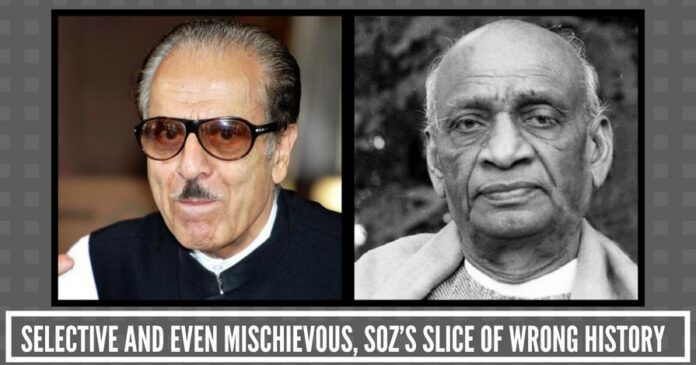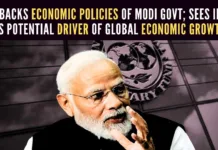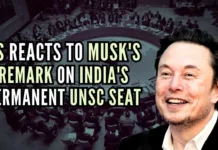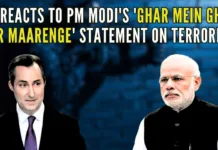
Saifuddin Soz would not have obliterated Nehru’s blunders for which the nation continues to pay a price to this date
Saifuddin Soz has bitten off more than he can chew. After having said that Sardar Vallabhbhai Patel favoured giving Kashmir to Pakistan and that he had documentary evidence to support his claim, he is now busy issuing clarifications. Caught on the wrong foot, the Congress has dismissed his opinion with contempt, leaving Soz to defend for himself.
Soz ought to know that the Sardar had become active on Kashmir from the last months of 1947
Let’s talk of the material that Soz must have been aware of but preferred to not present them in the way they stand. A detailed description of the issue at hand is available in the book, Patel: A Life, by Rajmohan Gandhi. The author produces a quote from a source the names in the book: Patel was content to “leave the decision (of Kashmir acceding to Pakistan) to the ruler”. The Sardar did not say that he favoured Kashmir being given to Pakistan; instead, he left the matter to the ruler — then Maharaja Hari Singh. Clearly, there was far more on Patel’s mind at that time (1947) than just Kashmir. VP Menon, who authored the book, The Transfer Of Power, is also quoted as saying that in the period before October 1947, “If truth be told, I for one had simply no time to think of Kashmir”, indicates the context then prevailing.
Gandhi further writes that the Maharaja was “unwilling, as a Hindu, to accede to Pakistan”, though he was “equally reluctant to join India” because he feared that Sheikh Abdullah, whom Jawaharlal Nehru favoured, would be allowed to unseat him. The great hero that Nehru-supporters almost worshipped, Lord Mountbatten, had in the meantime told the Maharaja that if Kashmir joined Pakistan, ‘it would not be regarded as unfriendly by the Government of India”.
Thus, while Patel was at that point in time somewhat ambivalent on the matter, Mountbatten was making it known that he would not be averse to Kashmir going to Pakistan — later he would play a key role in persuading Nehru to make the blunder of approaching the United Nations. Nehru on his part was keen to retain Kashmir but with Abdullah at the helm, further compounding the issue and pushing Hari Singh towards Pakistan or at an equidistance from India and Pakistan.
Strangely, Soz does not comprehend the Sardar’s shrewdness. Patel said a plebiscite in Kashmir would be conditional to a similar one that should be held in Hyderabad. MA Jinnah realised this was a lost cause because the people of Hyderabad — a Hindu-majority region — would never accept accession to Pakistan. By his master-stroke, Patel had sought to sabotage Jinnah’s demand for plebiscite in Kashmir. Unfortunately, the matter reached the UN, but fortunately for India, Pakistan played its hand poorly, and plebiscite never took place in the valley. Meanwhile, Patel effectively oversaw the joining of Hyderabad into the Indian Union and the Nizam’s humiliating retreat. Patel had reason to feel satisfied. At a meeting in Junagadh after the ruler there had surrendered and the princely state was on its way to officially become part of India, he said: “Pakistan attempted to set off Kashmir against Junagadh. When we raised the question of settlement in a democratic way, they (Pakistan) at once told us that they would consider if we applied that policy to Kashmir. Our reply was that we would agree to Kashmir if they agreed to Hyderabad.”
Soz ought to know that the Sardar had become active on Kashmir from the last months of 1947. According to Rajmohan Gandhi, when Pakistan began playing dirty on Junagadh (a Hindu-majority region), Patel decided that he would take a keener interest in Muslim-majority Kashmir: “From that day, Junagadh and Kashmir, the pawn and the Queen, became his simultaneous concerns. He would wrest the one and defend the other.”
The signal for this change with Nehru’s letter to the Maharaja, directing that Sheikh Abdullah should be the Prime Minister of Jammu & Kashmir while the Maharaja could be the constitutional head
Patel’s pro-activeness is further revealed by the author. “At Patel’s initiative, planes were diverted to the Delhi-Srinagar route and wireless and telegraph equipment to both ends of the Amritsar-Jammu link. Telephone and telegraph lines were laid between Pathankot and Jammu.” The ruler was left with no option but to accept and cooperate with the orders. At that point in time, Patel was active in matters related to Kashmir; soon Nehru would formally assume charge of Kashmir, leaving Patel with no authority on the subject — though that did not stop the Sardar from offering his blunt opinion on the matter.
After Pakistani elements had invaded Kashmir, the Maharaja was closeted in a high-level meeting at Nehru’s residence, and those present included the Prime Minister, Patel, VP Menon, Sheikh Abdullah, the Premier of Jammu & Kashmir and others. The Premier, in sheer frustration, declared that he would accept Pakistan’s terms if New Delhi failed to come to his aid, and got up to leave. Patel stopped him and said: “Of course Mahajan, you are not going to Pakistan.” The Sardar’s direct intervention saved the day for India since Nehru was forced to abandon his indecisiveness on the course of action. Indian troops soon were on the way and they were to beat back the Pakistan-sponsored invaders.
Soon, as mentioned earlier, Nehru took over charge of Kashmir while Patel continued as the Minister of States for the rest of the country. The signal for this change with Nehru’s letter to the Maharaja, directing that Sheikh Abdullah should be the Prime Minister of Jammu & Kashmir while the Maharaja could be the constitutional head. Patel would never have allowed that to happen had he controlled the Kashmir policy. He was deeply suspicious of the Sheikh — a suspicion which was to be later vindicated. Not just that, Nehru brought in Gopalaswami Ayyangar as his chief assistant, while Patel was apparently kept in the dark. The episode resulted in a clash between Nehru and Patel, with both expressing a desire to quit the Government in letters exchanged between them. Mahatma Gandhi’s intervention led to a truce.
If Saifuddin Soz had been objective, he would not have dragged Patel into the issue and presented him in poor light, and would also not have obliterated Nehru’s blunders for which the nation continues to pay a price to this date.
Note:
1. The views expressed here are those of the author and do not necessarily represent or reflect the views of PGurus.










